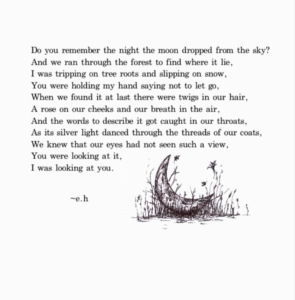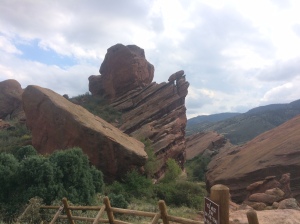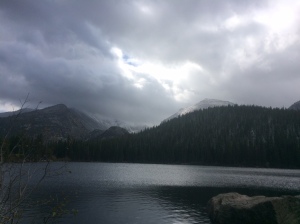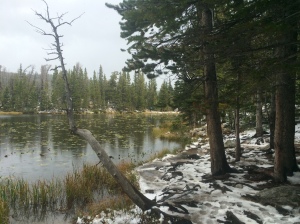Author: Diana
check it
Mental health and the outdoors
This summer I worked a field job, and only had four days off this summer. My therapist and I were concerned about how my bipolar would either negatively or positively affect my ability to work. Even with all the stress I faced from my job, my mood swings weren’t as bad. I didn’t start crying, just because. I’m a crier, just yesterday I had a ten minute sob fest, no triggers tears just began to roll down my face. It took me a long time to accept that some days I’ll just cry for no particular reason, there was no one to blame.
I remember when I first told my co-worker about being bipolar. I had to tell her we were going to be spending 24/7 together, and I was bound to start crying at some point. She understood, her own brother struggled with his own mental health.
After the field season was over, and the graduate school grind started up again I realized what had kept my moods in check. It was the outdoors, I spent up to ten hours a day outside surrounded by beauty. Reconnecting with the earth, and having her hold me somehow made things better.
I’ve been in Montana for just over a year but have yet to make many solid friends. Friends I have made happen to also be in my program and getting together proves difficult. So I posted a craigslist add looking for an activity buddy ( I got two responses yay). I realized that in order for me to function I need to get outside every couple of weeks, and camping alone isn’t very fun.
I’ve heard that being outdoors, helps people cope with mental illness. A Facebook friend posted a link to her fundraising page, for a hike. That is how I learned about Hike for Mental Health:
Hike For Mental Healths Mission is as follows:
- Increase public awareness of the challenges and suffering faced by those afflicted by mental illness and their families.
- Increase public appreciation for and responsible use of wilderness trails.
- Raise funds, principally by coordinating fundraising wilderness hikes, in order to
- prevent and alleviate the pain caused by mental illness
- maintain and preserve wilderness trails
There are hikes all over the United States, and I hope to join a hike as soon as I’m done getting my Master’s. But if you’ve got a couple of dollars to spare, you should totally think about donating or just spreading awareness.
Also if you’ve made it this far , Hello!! and thanks for reading.

It’s almost my one year of ” being diagnosed” with bipolar anniversary . One of the hardest things for me is describing my mania. Describing my depression is easy, at least for me. One day I suddenly wake up, and can’t find the motivation to get up and go on with my day. I have to dig deep inside, sometimes real deep especially when school is out of session. Everyday is the same, until I wake up and am overwhelmed with a burst of energy that just won’t quit. 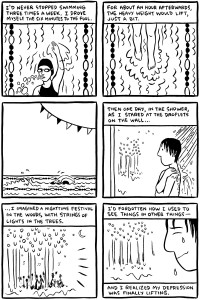
My mania is harder to describe. When most people hear mania, they think it’s great. Who wouldn’t want to be full of energy. Mania has ruined many of my romantic relationships, at the time I didn’t know it was due to mania, but looking back it’s clear mania was a large contributor to the end of relationships.Relationships are already difficult, but throw in unmanaged bipolar and a partner who feels everything is their fault. The relationship is pretty much doomed from the start. I stumbled upon Ellen Fornery who has bipolar disorder, and has written a memoir Marbles: Mania, Depression, Michelangelo, and Me. ( note I do not use the word suffers, I view bipolar as just being another one of my traits; I have brown ( currently blue) curly hair, brown eyes, and bipolar disorder). Marbles: Mania, Depression, Michelangelo, and Me is a graphic memoir, and it is the first time I have come upon a series of panels that help me describe my mania.


I have huge fascination with the sky, so here are some of my favorite sky photographs from this summer
Saturday morning yoga
inhale
exhale
pause
stop clinching, let go
let go,
let go some more
feel the moon tugging on your soul
melt into the earth
let her hold you
inhale one more time
eyes flutter open
back to reality
I’m now ready to tackle my day
instead of having my watch two minutes ahead I have it two minutes behind
list
-wake up -drink tea, tons of tea -be responsible – put soil in the oven – valium – work in a dark basement -review tomorrow’s lesson
